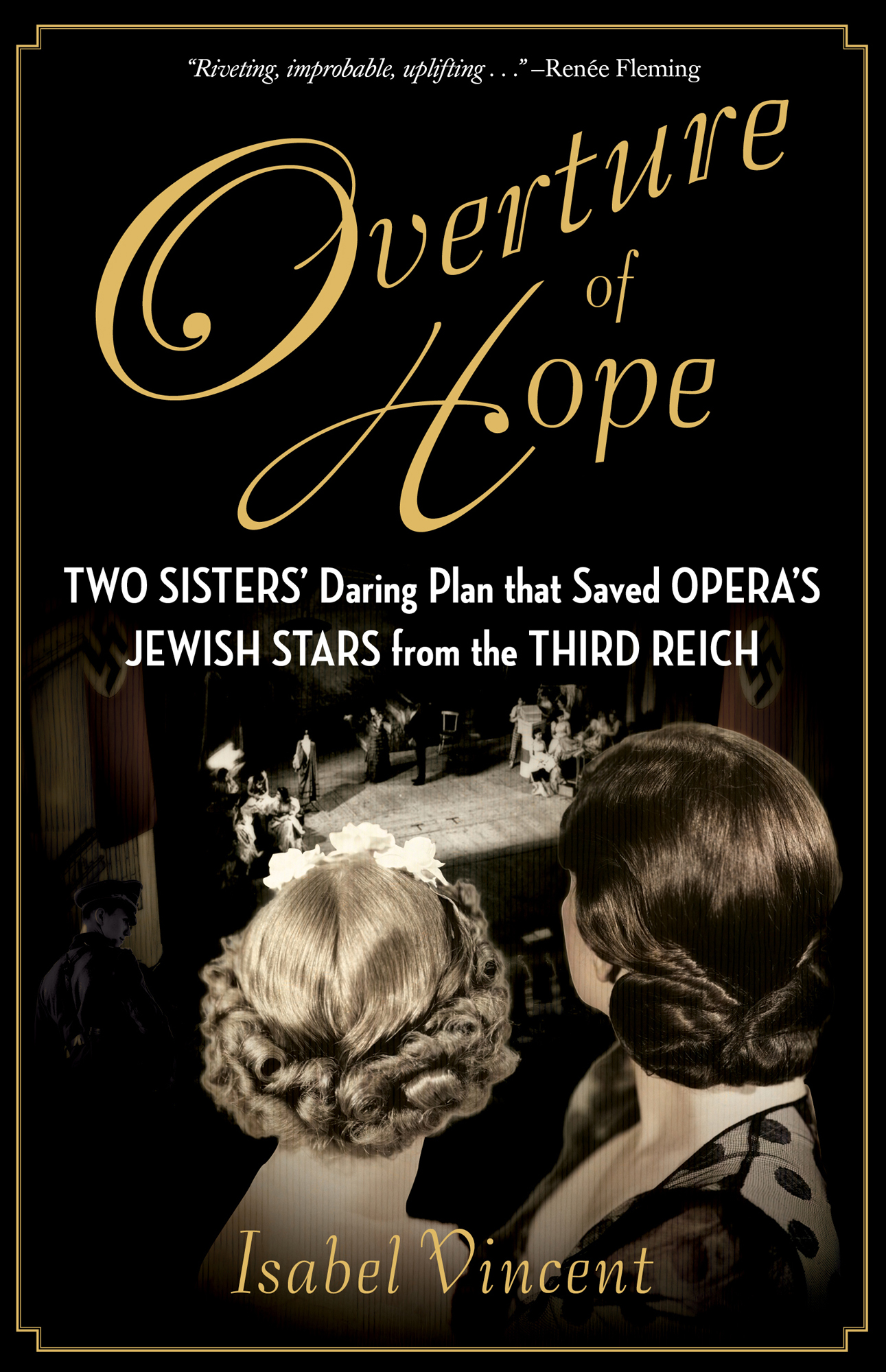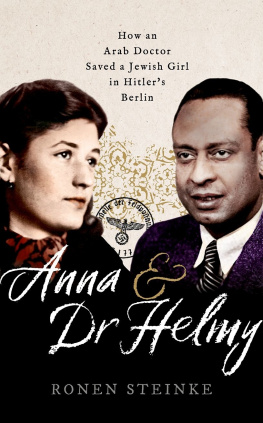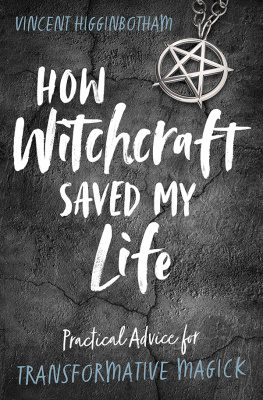Isabel Vincent - Overture of Hope : Two Sisters Daring Plan that Saved Operas Jewish Stars from the Third Reich
Here you can read online Isabel Vincent - Overture of Hope : Two Sisters Daring Plan that Saved Operas Jewish Stars from the Third Reich full text of the book (entire story) in english for free. Download pdf and epub, get meaning, cover and reviews about this ebook. year: 2022, publisher: Regnery Publishing, genre: Home and family. Description of the work, (preface) as well as reviews are available. Best literature library LitArk.com created for fans of good reading and offers a wide selection of genres:
Romance novel
Science fiction
Adventure
Detective
Science
History
Home and family
Prose
Art
Politics
Computer
Non-fiction
Religion
Business
Children
Humor
Choose a favorite category and find really read worthwhile books. Enjoy immersion in the world of imagination, feel the emotions of the characters or learn something new for yourself, make an fascinating discovery.

- Book:Overture of Hope : Two Sisters Daring Plan that Saved Operas Jewish Stars from the Third Reich
- Author:
- Publisher:Regnery Publishing
- Genre:
- Year:2022
- Rating:4 / 5
- Favourites:Add to favourites
- Your mark:
- 80
- 1
- 2
- 3
- 4
- 5
Overture of Hope : Two Sisters Daring Plan that Saved Operas Jewish Stars from the Third Reich: summary, description and annotation
We offer to read an annotation, description, summary or preface (depends on what the author of the book "Overture of Hope : Two Sisters Daring Plan that Saved Operas Jewish Stars from the Third Reich" wrote himself). If you haven't found the necessary information about the book — write in the comments, we will try to find it.
Isabel Vincent: author's other books
Who wrote Overture of Hope : Two Sisters Daring Plan that Saved Operas Jewish Stars from the Third Reich? Find out the surname, the name of the author of the book and a list of all author's works by series.
Overture of Hope : Two Sisters Daring Plan that Saved Operas Jewish Stars from the Third Reich — read online for free the complete book (whole text) full work
Below is the text of the book, divided by pages. System saving the place of the last page read, allows you to conveniently read the book "Overture of Hope : Two Sisters Daring Plan that Saved Operas Jewish Stars from the Third Reich" online for free, without having to search again every time where you left off. Put a bookmark, and you can go to the page where you finished reading at any time.
Font size:
Interval:
Bookmark:

Riveting, Improbable, Uplifting Rene Fleming
Overture of Hope
Two Sisters Daring Plan that Saved Operas Jewish Stars from the Third Reich
Isabel Vincent

For Nlida Pin.
In memory of my friend Bill Ray, and my father, Afonso Costa Vicente.
This is a work of nonfiction. All language appearing between quotation marks is taken from original source documentsletters, telegrams, archives, interviews, newspapers, magazines, and books. Occasionally, I have placed the endnote number at the end of a long passage of dialogue for the sake of expediency.
T he stiff brown envelopes arrived on a librarians cart, each carefully weighed by an officious attendant who wore dust gloves and used a desktop scale. It was only after the weight was carefully recorded on duplicate research slips that I was permitted to take the envelopesone at a timeand retreat to the little area I had carved out at a communal study table at the Victoria & Albert Archives at Blythe House in London where I sat for days sifting through the ephemera of two remarkable lives, shelved long ago and largely forgotten.
I eagerly opened one envelope after another, some stuffed with elaborately illustrated 1920s Royal Opera House programs from Covent Garden with their ads for Columbia New Process Records, Steinway grand pianos, and the Cliftophonethe worlds best gramophone. Other programs for the Salzburg Festival and opera in Berlin, Munich, and Vienna were in German, and some featured large swastikas on the covers with introductory remarks by Adolf Hitler on facing pages. There were faded black-and-white promotional photographs of stars in rich velvet tunics, adorned in brocade. With sincere good wishes, reads the autograph of the renowned American baritone Lawrence Tibbett as Iago, on his fan photo for the Metropolitan Operas 1937 production of Giuseppe Verdis Otello. Other envelopes yielded sheaves of handwritten correspondence from Vienna, Munich, Berlin, and New York.
One letter immediately intrigued me.
Written in a rapid, flowing hand on cream-colored stationery, embossed with Sul Monte, N.Y. at the top of the page, it contained three pressed maple leaves. They were brown with age, but otherwise perfectly preserved, even though the date on the letter was October 16, 1931.
There was something magical about finding those leaves in October 2017eighty-six years after the letter was written, and on the first day of my research into the lives of Ida and Louise Cook, English sisters who risked their lives to bring twenty-nine Jewish refugees to safety on the eve of war.
The pressed leaves not only spoke to the romantic character of the letter writerthe great soprano Amelita Galli-Curci, who became a lifelong friend to Ida and Louisebut also to the sense of wonder and innocence of the sisters themselves.
Who were these women whose historical legacy includes pressed autumn leaves? How did they become Two Against Hitler, among the unlikeliest heroines of the Second World War?
I knew that part of the answer lay in their passion for opera and its stars. In appearance, Ida and Louise were unthreatening and forgettable. They were plain and anonymous civil-servant typists who lived quietly with their parents in south London. But they developed intense inner lives. They were clearly infatuated with Clemens Krauss, the dashing Austrian conductorHitlers favoritewho along with his wife, the soprano Viorica Ursuleac, started them on their refugee work. The Cooks formed deep friendships with the performers and musicians who found themselves stuck in a real-life melodrama in Nazi Germany and Austria, immersed in desperate scenes punctuated by burning synagogues and helmeted Nazis wielding bayonets and rounding up women and children. Inspired by their operatic heroines, the sisters naively thrust themselves into this dark overture.
Yet they could scarcely have imagined what awaited them when they began queuing outside Covent Garden for cheap seats to performances as the Nazis began their rise to power in Germany. In the 1920s and early 1930s, the sisters innocently amassed a sizable collection of photographs that Ida took of their favorite stars and collected dozens of gramophone records. Ida, the more outgoing of the two, maintained a decades-long correspondence with her beloved prima donnas. In addition to Galli-Curci, she corresponded with Elisabeth Rethberg, and later Rosa Ponselle.
It was largely through Idas letters, most of them tightly typed on light-blue aerograms and scattered in the miscellaneous correspondence files of some of the worlds most celebrated sopranos (but also baritones and tenors) that I was able to piece together the story of these extraordinary ordinary sisters.
My dear Ida, began the letter in which Galli-Curci enclosed the leaves from Sul Monte, her lavish estate in the Catskill Mountains, where she would invite her English girls for visits. The sisters held on to those leaves into their old agepriceless tokens of their opera-world adventures that began after they met the Italian diva backstage at the Albert Hall in Londonand naively vowed to save enough money to hear her sing at the Metropolitan Opera in New York. It would take them two years of going without lunches and walking most of the way to their secretarial jobs to manage to buy their third-class passage to sail to the city. They made the first of many trips to their beloved Manhattan in 1927 when Louise was twenty-five and Ida twenty-two.
The same pluck and determination that launched them in their passion for opera would propel them on their increasingly dangerous missions into the Third Reich. In fact, they used opera performances as a ruse to travel into Austria and Germany to meet their refugees. We built ourselves a reputation. The men in customs used to chuckle, Here come those two verruckt (crazy) English ladies. They are only poor office workers and they spend their money to come here to listen to German opera.
They were too obvious to be suspicious.
When they returned to London after a weekend at the opera in Munich, Vienna, or Berlin, they did so laden with the glittering jewels, Swiss watches, and furs belonging to refugees who would otherwise have had to surrender their valuables to the Nazis upon their exit from the Reich. Boldly plastered on their Woolworth dresses, the sisters gambled that the expensive jewelry would surely look fake.
Their mission, the calling for which they would risk everything, was successful. And it would succeed again and again.
When I began my research, which took me on a three-year odyssey through archives in England, Italy, Germany, Austria, the United States, and Israel, I was convinced the Cook sisters must have been spies. After all, they engaged in dangerous undercover work, meeting clandestinely with Jewish refugees under the nose of the Nazi secret police. They worked with members of the resistance in Germany, sending coded messages and meeting at safe houses in Frankfurt and Berlin. Louise, the more studious and retiring of the sisters, taught herself German at lightning speed. They rented a flat in a central London complex frequented by British wartime spies. And, most intriguingly, Louise burned all their refugee files long after the war.
But as I delved deeper into their lives and spoke to surviving friends and even an old schoolmate, I came to realize that Ida and Louise had most likely acted on their own, at first at the behest of their beloved stars, and then when word of their relief work spread and desperate letters addressed simply to Ida and Louise began arriving at British consulates in the Third Reich, they were determined to help at any cost. In England, they established a small network of friends and strangers who came forward with offers of financial guarantees for the refugees. Others contributed in smaller ways. One friend walked halfway to her office every day and gave the Cooks the saved bus fares to buy the postage necessary for their work. Another friend cut her cigarette consumption in half and contributed the money towards the maintenance of one of their cases.
Font size:
Interval:
Bookmark:
Similar books «Overture of Hope : Two Sisters Daring Plan that Saved Operas Jewish Stars from the Third Reich»
Look at similar books to Overture of Hope : Two Sisters Daring Plan that Saved Operas Jewish Stars from the Third Reich. We have selected literature similar in name and meaning in the hope of providing readers with more options to find new, interesting, not yet read works.
Discussion, reviews of the book Overture of Hope : Two Sisters Daring Plan that Saved Operas Jewish Stars from the Third Reich and just readers' own opinions. Leave your comments, write what you think about the work, its meaning or the main characters. Specify what exactly you liked and what you didn't like, and why you think so.







